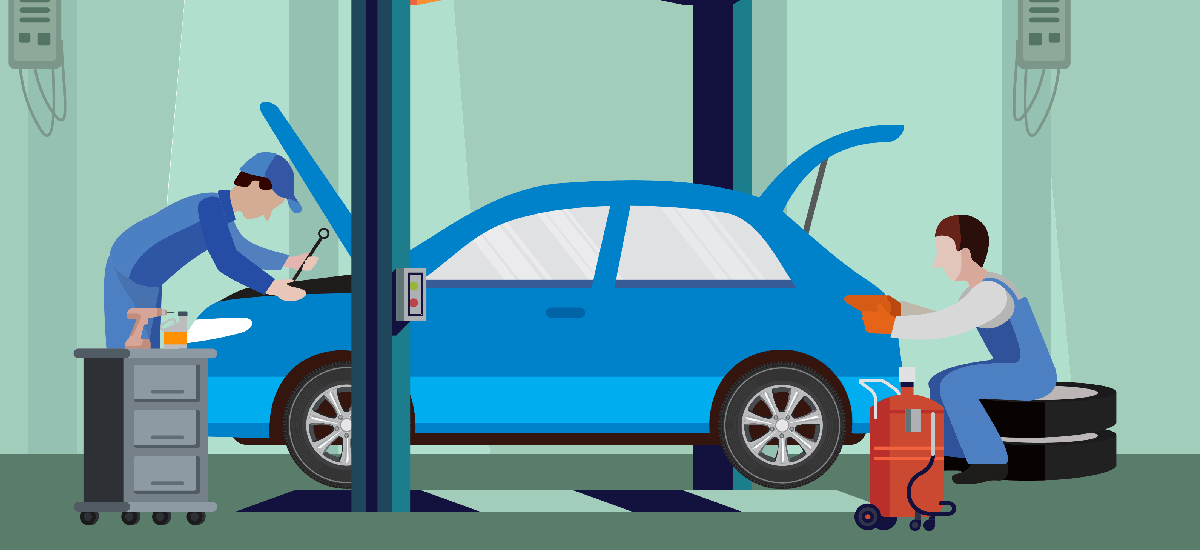Featured
Routine tire rotations are a vital yet typically forgotten aspect of car maintenance. This basic procedure, which includes transforming the placement of your tires, helps preserve even put on throughout all 4 tires, ultimately boosting your lorry's efficiency and long life. Let's discover the value of tire rotations and the concrete benefits they offer.
What Is a Tire Rotation?
![]()
Tire turning includes relocating the tires to different settings on your vehicle. For instance, the front tires might be swapped with the rear ones, or they may be crossed from one side of the lorry to the various other. The rotation pattern relies on factors like your car's drivetrain (front-wheel drive, rear-wheel drive, or all-wheel drive) and the type of tires you use.
Why Are Regular Tire Rotations Important?
Tire rotations ensure that all tires use down equally. Uneven tire wear takes place naturally since various tires experience varying levels of stress based upon their placement. :
Front tires on front-wheel-drive automobiles manage more tasks like steering, stopping, and acceleration, causing them to use much faster.
Rear tires on rear-wheel-drive cars birth similar burdens, resulting in irregular wear patterns if left uncontrolled.
![]()
Without normal turnings, some tires might put on out prematurely, necessitating substitute quicker than anticipated.
Benefits of Regular Tire Turnings
Enhanced Efficiency and Handling. Even tire wear assists maintain well balanced grip across all four tires. This equilibrium is important for ideal automobile handling, particularly in tough driving conditions such as rainfall or snow.
Extended Tire Life Expectancy. Routine turnings distribute put on even more evenly, decreasing the need for regular replacements and saving you cash over time.
![]()
Improved Gas Effectiveness. Erratically used tires can enhance moving resistance, forcing your engine to work more difficult and consume even more gas. Properly revolved tires make certain smoother adventures and far better fuel economy.
Safety. Worn tires compromise grasp and braking efficiency, increasing the danger of mishaps. Rotating your tires frequently maintains constant step deepness and makes certain a much safer driving experience.
How Typically Should You Turn Your Tires?
Most experts suggest revolving your tires every 5,000 to 7,500 miles, but this can vary based on your automobile's producer standards. It's an excellent practice to incorporate tire rotations with regular services like oil modifications for comfort.
Signs You Required a Tire Rotation
Unequal step endure your tires.
Obvious resonance while driving.
Problem managing the vehicle on slippery or damp roads.
Final Ideas
Routine tire turnings are an easy yet impactful upkeep task that improves automobile performance, enhances safety, and conserves you money. By committing to this practice, you'll appreciate a smoother driving experience and a longer lifespan for your tires. Consult your vehicle's manual or a relied on technician to ensure you're following the best rotation routine and pattern for your cars and truck.
What Is a Tire Rotation?

Tire turning includes relocating the tires to different settings on your vehicle. For instance, the front tires might be swapped with the rear ones, or they may be crossed from one side of the lorry to the various other. The rotation pattern relies on factors like your car's drivetrain (front-wheel drive, rear-wheel drive, or all-wheel drive) and the type of tires you use.
Why Are Regular Tire Rotations Important?
Tire rotations ensure that all tires use down equally. Uneven tire wear takes place naturally since various tires experience varying levels of stress based upon their placement. :
Front tires on front-wheel-drive automobiles manage more tasks like steering, stopping, and acceleration, causing them to use much faster.
Rear tires on rear-wheel-drive cars birth similar burdens, resulting in irregular wear patterns if left uncontrolled.

Without normal turnings, some tires might put on out prematurely, necessitating substitute quicker than anticipated.
Benefits of Regular Tire Turnings
Enhanced Efficiency and Handling. Even tire wear assists maintain well balanced grip across all four tires. This equilibrium is important for ideal automobile handling, particularly in tough driving conditions such as rainfall or snow.
Extended Tire Life Expectancy. Routine turnings distribute put on even more evenly, decreasing the need for regular replacements and saving you cash over time.

Improved Gas Effectiveness. Erratically used tires can enhance moving resistance, forcing your engine to work more difficult and consume even more gas. Properly revolved tires make certain smoother adventures and far better fuel economy.
Safety. Worn tires compromise grasp and braking efficiency, increasing the danger of mishaps. Rotating your tires frequently maintains constant step deepness and makes certain a much safer driving experience.
How Typically Should You Turn Your Tires?
Most experts suggest revolving your tires every 5,000 to 7,500 miles, but this can vary based on your automobile's producer standards. It's an excellent practice to incorporate tire rotations with regular services like oil modifications for comfort.
Signs You Required a Tire Rotation
Unequal step endure your tires.
Obvious resonance while driving.
Problem managing the vehicle on slippery or damp roads.
Final Ideas
Routine tire turnings are an easy yet impactful upkeep task that improves automobile performance, enhances safety, and conserves you money. By committing to this practice, you'll appreciate a smoother driving experience and a longer lifespan for your tires. Consult your vehicle's manual or a relied on technician to ensure you're following the best rotation routine and pattern for your cars and truck.
Latest Posts
Elegant Comfort Starts from the Ground Up
Published Apr 21, 25
1 min read
Specials & Discounts: Enjoy Deals on Quality Auto Care at Montclare Auto Repair
Published Apr 21, 25
2 min read
Exploring Quality with A-Abel Roof covering's Gallery
Published Apr 21, 25
1 min read